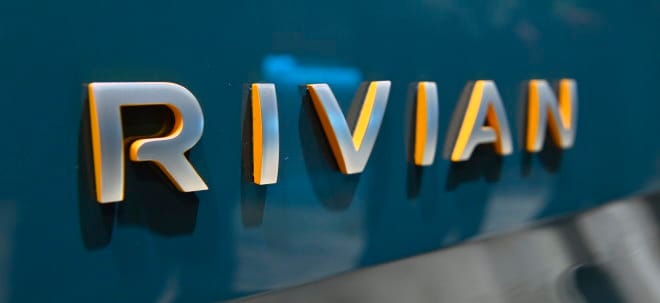RESPONDING TO U.S. TARIFFS TO ENSURE THE SUCCESS OF NORTH AMERICA'S INTEGRATED AUTOMOTIVE INDUSTRY
OTTAWA, ON, Feb. 3, 2025 /CNW/ - The Canadian Automotive Partnership Council (CAPC) held an emergency meeting to discuss the substantial threat posed on North America's automotive manufacturing industry by the potential introduction of 25 percent tariffs on Canadian goods. CAPC members were joined by the Honourable François-Philippe Champagne, Minister of Innovation, Science and Industry (Government of Canada), as well as the Honourable Christopher Skeete, Minister for the Economy (Government of Quebec).
The importance of overall bilateral trade between Canada and the United States was highlighted, noting that Canada buys more U.S. goods than any other country – more than China, Japan, France, and the United Kingdom combined. Trade with Canada is key to U.S. prosperity and jobs – nearly 8 million U.S. jobs are supported by trade with Canada.
CAPC members recognized the highly integrated nature of the North American automotive industry and the negative impacts that tariffs would have on Canada, Mexico and the U.S. The discussion highlighted that the Canadian and U.S. automotive industries together form one of the most integrated industries in the world, and that tariffs pose an existential threat to the immediate and long-term success of the industry on both sides of the border, with costs ultimately being borne by consumers.
Also discussed was the fact that bilateral automotive trade is well balanced, with Canadian exports to the U.S. at C$82 billion and imports at C$79 billion in 2023. Members also stressed the importance of understanding that Canadian-made vehicles do not pose a threat to U.S. automotive jobs or production mandates. Fewer than 10 percent of vehicles sold in the U.S. are produced in Canada, whereas the U.S. assembles approximately half of the vehicles sold in Canada. The U.S. exports more vehicles to Canada than to any other country, underlining Canada's position as the United States' most important partner in the automotive sector.
The meeting provided industry leaders with an opportunity to engage directly with Minister Champagne and Minister Skeete regarding the impacts of U.S. tariffs. Members sought to dispel the notion that tariffs on Canadian automotive parts and vehicles would result in a timely shift of production to the U.S. Members have stated publicly that the investment required would take years to implement.
Members also explained that some automotive parts cross the border upwards of seven times prior to being installed in a vehicle. Tariffs would wreak havoc on supply chains and vehicle assembly on both sides of the border and jeopardize a longstanding and efficient industry that supports hundreds of thousands of jobs in Canada and the U.S. Ultimately this will hurt U.S. and Canadian consumers alike.
In closing, members sought to reiterate that free trade in the automotive sector between Canada and the United States is key to supporting workers and prosperity in both countries. Members called for a swift resolution of the tariffs dispute in order to protect this critical industry.
Following the meeting, Co-Chairs Rob Wildeboer and Jean Marc Leclerc provided the following comment:
"The highly integrated auto sector demonstrates the mutually beneficial relationship that can be developed by working co-operatively with our neighbours and allies. We will continue to build our trading relationships in ways that work for all areas of the supply chain and reinforce the message that Canadian exports are an asset and not a threat to the U.S. auto manufacturing sector. Today's meeting was an opportunity for us to show our collective support for continued dialogue with the U.S. to find a path towards a swift resolution of these tariffs, providing clarity and stability throughout the region."
The Honourable François-Philippe Champagne, Minister of Innovation, Science and Industry, noted:
"Today, I met with the Canadian Automotive Partnership Council (CAPC) to discuss Canada's response to unfair and unjustified U.S. tariffs on Canadian goods. The North American automotive industry is one of the most integrated industries in the entire world, and one that has delivered lower costs, countless jobs, and long-standing growth since the signing of the Canada-US Auto Pact in 1965. Indeed, trade in the automotive sector today stands at near balance (with Canadian exports to the U.S. at C$82 billion and imports at C$79 billion in 2023) and represents a robust economic partnership that has served both Canadian and American workers for generations. While this is at risk with the tariffs proposed by President Trump on February 1, 2025, it is without question that we will always protect Canadian interests, and put Canadian workers first."
Background
The Canadian Automotive Partnership Council (CAPC) is an industry-led organization whose mandate is to address the key competitiveness issues facing the Canadian automotive industry. Membership comprises the CEOs of Canada's five automotive assemblers, leaders of Canada's leading parts suppliers, representatives from labour, academia, and aftermarket and dealer associations. The meeting was chaired by the Co-Chairs of CAPC, Rob Wildeboer, the Executive Chairman of Martinrea International Inc., and Jean Marc Leclerc, President and CEO of Honda Canada Inc.
SOURCE Canadian Automotive Partnership Council (CAPC)

